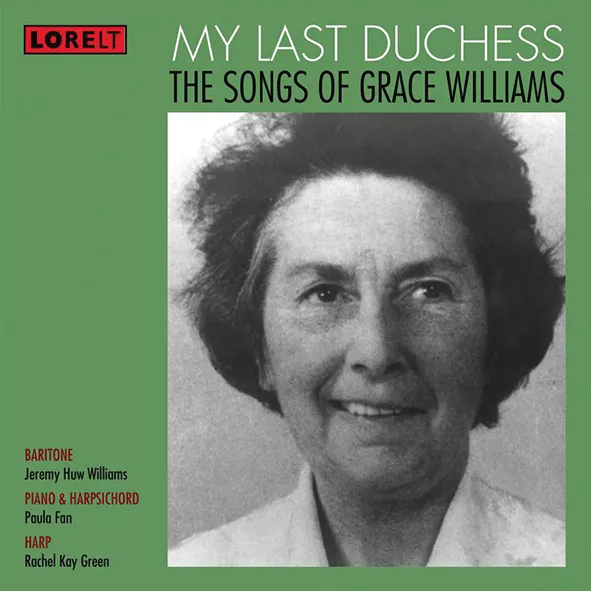
My Last Duchess: The Songs of Grace Williams My Last Duchess; Two Ninth-Century Welsh Poems; Four Mediaeval Welsh Poems; Two Welsh Folk Songs; Six Welsh Oxen Songs Jeremy Huw Williams (baritone), Paula Fan (piano, harpsichord), Rachel Kay Green (harp) Lorelt LNT140
An irony of Wales’s moniker, ‘The Land of Song’, is that Welsh art song composers have often struggled to find a platform at home – especially for Welsh- language settings. In 1976, a year before her death, Grace Williams commented, 'I love the sound of Welsh poetry, particularly the mediaeval poetry, and have set some of it to music. The difficulty lies in getting it sung, because of singers’ inability (or unwillingness) to cope with the language – even among Welsh singers.’
No such concerns hinder baritone Jeremy Huw Williams, who proves a passionate advocate in both English and Welsh of the composer’s shamefully neglected art songs and folk song arrangements, strongly supported by Paula Fan (piano and harpsichord) and Rachel Kay Green (harp).
Of 28 songs, half are grouped into collections of two to six, and all but four are in Welsh. The album is named for the final, most substantial piano song of Williams’s output: dated 1975, My Last Duchess sets Browning’s chillingly Bluebeard- esque poem with a declamatory intensity reflecting its subheading, ‘Scena’ – to which JH Williams rises with sometimes unbridled vibrato, but potent characterisation.
Elsewhere, the mood can be lighthearted; among early arrangements, the Six Welsh Oxen Songs (1937) for instance. But composer and performers alike are at their most sonorously vivid in characteristically darker, yearning territory – notably the Four Mediaeval Welsh Poems (1962). With a brittly resonant major-minor accompaniment pairing harp and harpsichord, these settings combine a modal romanticism with ancient Welsh poetic forms to eerily beautiful effect.
Steph Power